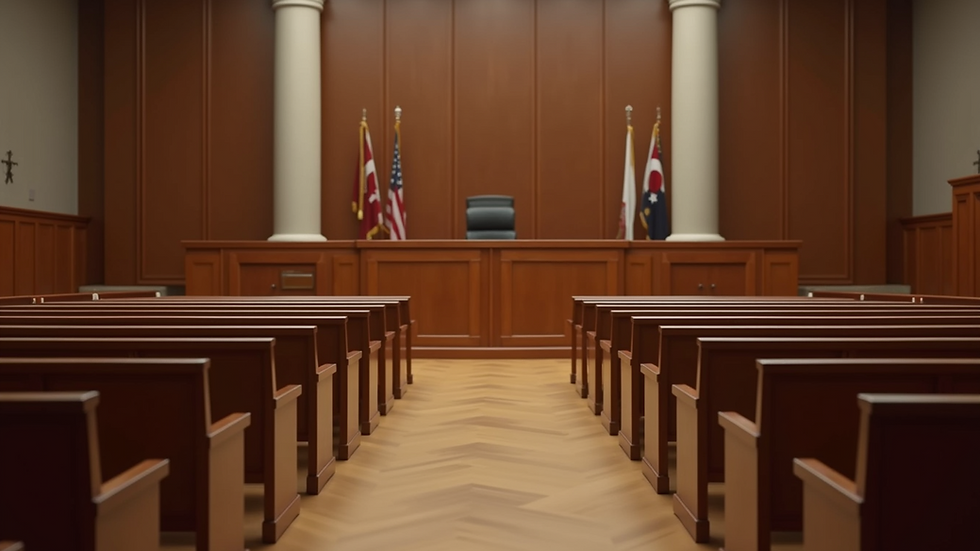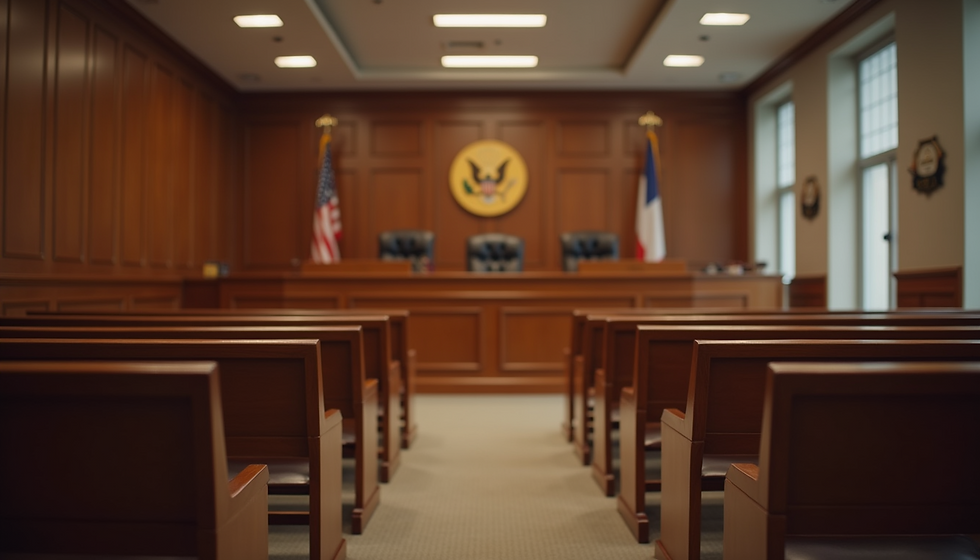Understanding Wrongful Accusations in the Court System Insights from Ryan Kuehner Former St Charles County Deputy
- ryankuehner
- Oct 23, 2025
- 4 min read
Understanding wrongful accusations in the court system is a complex and often distressing topic. Ryan Kuehner, a former St. Charles County Sheriff's Deputy, sheds light on this issue, drawing from his experiences in law enforcement and the judicial process. His insights reveal how easily individuals can find themselves wrongfully accused and the broader implications of these situations.
The Nature of Wrongful Accusations
Wrongful accusations can happen for many reasons, including misidentification, false testimonies, and systemic flaws within the legal system. Kuehner emphasizes that these accusations can have severe consequences, not only for the accused but also for victims of real crimes. In fact, according to the National Registry of Exonerations, wrongful convictions divert approximately $55 million away from resources that could assist genuine cases each year.
The court system's goal is to uphold justice, but it is not infallible. Human error plays a significant role in wrongful accusations. Law enforcement officers, witnesses, and even jurors may make mistakes that lead to innocent people facing serious charges. For example, a 2016 study from the Innocence Project found that mistaken witness identification contributed to 71% of wrongful convictions later overturned by DNA evidence.
The Role of Eyewitness Testimony
Eyewitness testimony is one of the biggest contributors to wrongful accusations. Kuehner explains that while these accounts can seem convincing, they are often unreliable. Research shows that memory can be affected by various factors, including stress and the manner of questioning. For example, a witness who panicked during a robbery may misidentify the suspect later, as seen in a high-profile case in 1999 where a person was wrongfully convicted based on faulty eyewitness testimony.

This case highlights the need for caution when relying on eyewitness accounts in court. It’s crucial for jurors and judges to consider the reliability of such testimony, especially since studies show that nearly 40% of wrongful convictions are based on incorrect eyewitness identifications.
The Impact of Media Coverage
Media coverage can significantly shape public perception and influence the legal process. Kuehner points out that sensationalized reporting can lead to hasty conclusions, where both the public and law enforcement jump to judgments based on incomplete or misleading information.
This creates a "trial by media" scenario, where the accused is presumed guilty even before entering the courtroom. Sensational headlines often overshadow the facts, highlighting the need for responsible journalism. For instance, in cases like that of Steven Avery, a man wrongfully convicted and later exonerated, media frenzy around the case added to the public perception of guilt, which persisted even after new evidence arose.
Systemic Issues in the Legal System
Kuehner discusses systemic issues within the legal system that contribute to wrongful accusations. For example, many police departments have inadequate training protocols for officers, which can lead to improper investigative procedures. Additionally, public defenders often handle overwhelming caseloads, making it difficult to provide effective defense for each client. On average, public defenders may have more than 100 cases at a time, severely limiting the time they can devote to each case.
These systemic flaws foster an environment where wrongful accusations can thrive. Kuehner advocates for reforms, emphasizing the necessity of better training, resources, and support for all law enforcement and legal professionals involved in the process.
The Emotional Toll on the Accused
The emotional impact of being wrongly accused is profound and can last long after the truth is revealed. Kuehner shares stories of individuals who have faced the stigma of being labeled a criminal, even after their innocence is proven. The fallout can lead to anxiety, depression, and a sense of isolation.

Kuehner underscores the importance of mental health support for those who have faced wrongful accusations. Providing access to counseling and rehabilitation resources can help individuals rebuild their lives after such traumatic experiences. For instance, support programs for exonerees have been shown to significantly improve their mental health outcomes and social reintegration.
The Importance of Advocacy
Advocacy is essential in addressing wrongful accusations. Kuehner highlights the vital work of organizations focused on exonerating the wrongfully accused and raising awareness about systemic flaws in the justice system. Groups such as the Innocence Project rely heavily on community volunteers and donations to support their initiatives.
Kuehner encourages individuals to get involved, whether through volunteering, donating, or simply spreading awareness. For example, participating in community outreach events or donating to organizations that support wrongful conviction cases can make a significant difference. By advocating for more robust reform, society can strive towards a fairer legal system that minimizes the risk of wrongful accusations.
Legal Reforms and Future Directions
Kuehner believes legal reforms are crucial in preventing wrongful accusations. This includes implementing strict guidelines for eyewitness identifications, enhancing training for law enforcement officers, and ensuring public defenders have adequate resources to represent their clients effectively.
Furthermore, Kuehner advocates for the integration of technology, such as body cameras and forensic evidence, which can provide clearer accounts of events. These tools can significantly reduce the likelihood of wrongful accusations and improve the integrity of the system. Studies indicate that the use of body cameras has led to a 93% drop in complaints against police officers, highlighting their potential to enhance transparency.
A Path Toward Justice
Understanding wrongful accusations in the court system is vital for creating a fair society. Insights from Ryan Kuehner, a former St. Charles County Sheriff's Deputy, emphasize the complexities and challenges associated with this issue. By addressing systemic flaws, advocating for reform, and supporting those wrongfully accused, we can work toward a justice system that truly upholds fairness for all.

The journey toward justice is ongoing and requires the collective effort of individuals, communities, and institutions. By working together, we can strive to ensure that wrongful accusations become a thing of the past.


